Faculty Spotlight: 18 Questions With Dr. Cara Gonzales
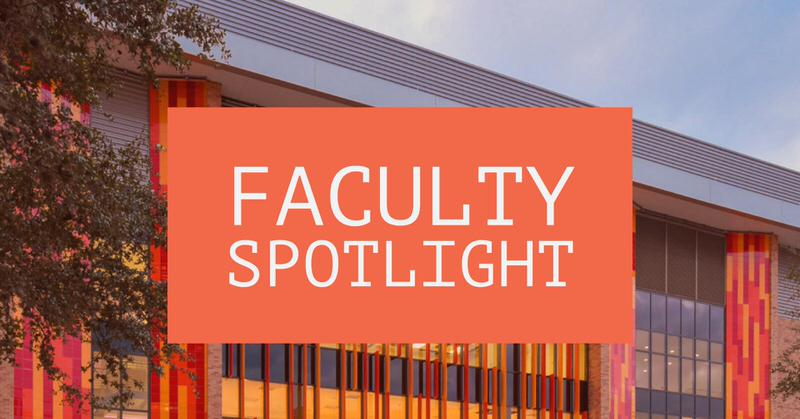
Dr. Cara Gonzales is an Associate Professor with tenure in the Department of Comprehensive Dentistry where she performs translational research in the field of oral cancer. In addition to her research, she practices as a general dentist in the Faculty Practice Clinic. She also assists with screening potential patients for the dental school and overseeing students in the clinic. Her teaching duties allow her to work closely with students in the classroom, the clinic, and the laboratory.
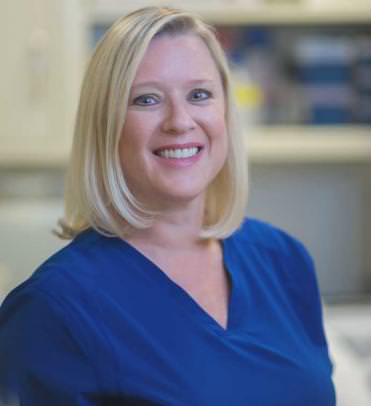 1) Please tell me about yourself.
1) Please tell me about yourself.
I am a dentist scientist with an active translational research program focused on oral cancer and oral cancer pain.
2) What brought you to UT Health San Antonio?
I am a native of San Antonio, I began my studies at The University of Texas Health Science Center at San Antonio in 1994 as a graduate student in Cellular and Structural Biology. As a graduate student, I worked in the laboratory of Dr. Mary MacDougall studying the genetics of inheritable tooth disorders. I began dental school in 1999 and was the first NIDCR F30 recipient at UT Health San Antonio and only second in the country.
3) Tell me about your research interests and why you are passionate about this topic?
I always wanted to do cancer research therefore I changed my research focus from tooth development to oral cancer during my post-doctoral training which consisted of a post-doctoral fellowship for three years and then a two year Advanced Education in General Dentistry Residency combined with a VA Research Fellowship.
4) What do you want the public to know about your research? Why is your topic important?
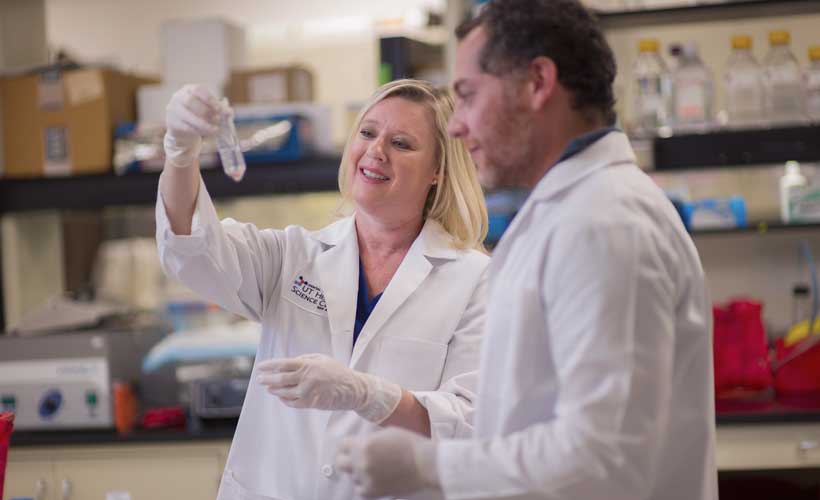 Head and neck cancer is the 8th most common cancer with 50,000 new diagnoses and 9,000 deaths reported annually. Most patients have advanced disease at the time of their diagnosis which reduces their five year survival rate to less than 50 percent. Furthermore, no new therapies for advanced head and neck cancers have been developed in over 40 years.
Head and neck cancer is the 8th most common cancer with 50,000 new diagnoses and 9,000 deaths reported annually. Most patients have advanced disease at the time of their diagnosis which reduces their five year survival rate to less than 50 percent. Furthermore, no new therapies for advanced head and neck cancers have been developed in over 40 years.
Head and neck cancer is also the most painful tumor type there is; more painful than breast, prostate, lung cancers etc. Therefore, my laboratory is developing new drugs targeting oral cancer and oral cancer pain. We have very promising and exciting compounds that show very good efficacy in rodent models of oral cancer and oral cancer pain.
These therapies need to be tested in clinical trials in order to translate them for clinical use. This transition is usually the limiting factor in developing any new drug because the NIH does not fund the types of pre-clinical studies, namely large animal studies, needed to do a Phase I clinical trial. Therefore, we are dependent on entrepreneurial donations to move our compounds towards a clinical application.
5) What is your favorite part of your job?
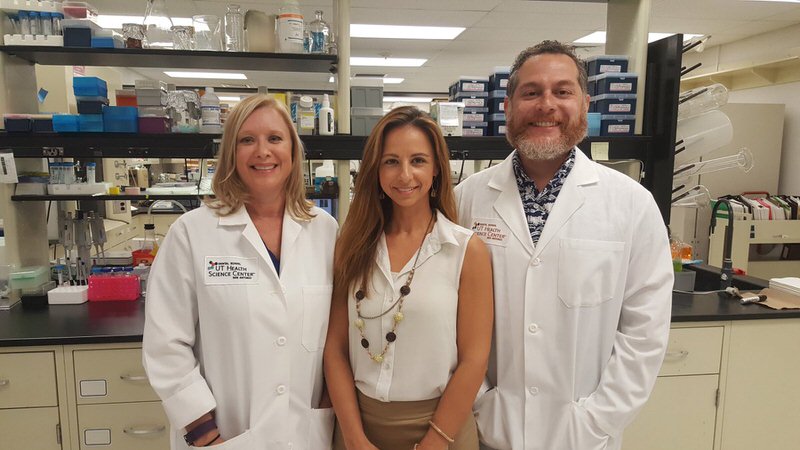 There are so many components to my job; I teach didactic courses and clinical courses, I provide patient care, I design experiments and analyze data, and I write grants and papers for publications. Each of these components have aspects that I really love.
There are so many components to my job; I teach didactic courses and clinical courses, I provide patient care, I design experiments and analyze data, and I write grants and papers for publications. Each of these components have aspects that I really love.
I love seeing the lightbulb go on when teaching students. I love being able to help my patients to feel better. I love getting new data, “it’s like opening a present and hoping it’s what you wished for.”
Obtaining funding is a huge part of my job so of course I love getting a grant funded and a paper accepted. Some provide me with instant gratification (working with students and patients) while others are delayed (data and funding). The variety means I never get bored and I always have something new and exciting to work on.
6) What is the most challenging part of your job?
Obtaining funding. Funding for research and education has been cut so dramatically that it is extremely difficult to maintain an active research program. Consequently, many talented scientists stop doing research and have to find a new way to use their knowledge and expertise. This is a travesty considering the years of training and the high level of need for experts in all fields.
7) What do you like most about mentoring students?
Students are just fun! I love working on a new research project with them, seeing the “a-ha factor” and most of all, watching them grow into their professions…that’s the most rewarding part. I took my six year old to the Pediatric Dentistry at the COHR and he got one of my first dental students as his dentist. I told her, “you officially know more than I do;” watching the student become the teacher is very exciting.
8) How do you like to spend your free time?
I really don’t have much free time so it is spent with my family. I have a six year old son in kindergarten and a 24 year old son graduating from college! These are busy but exciting times at home too.
9) What is the most helpful advice you’ve received?
Have faith in yourself, never quit, and don’t let what other people say dictate your ambitions. If you believe you can do something th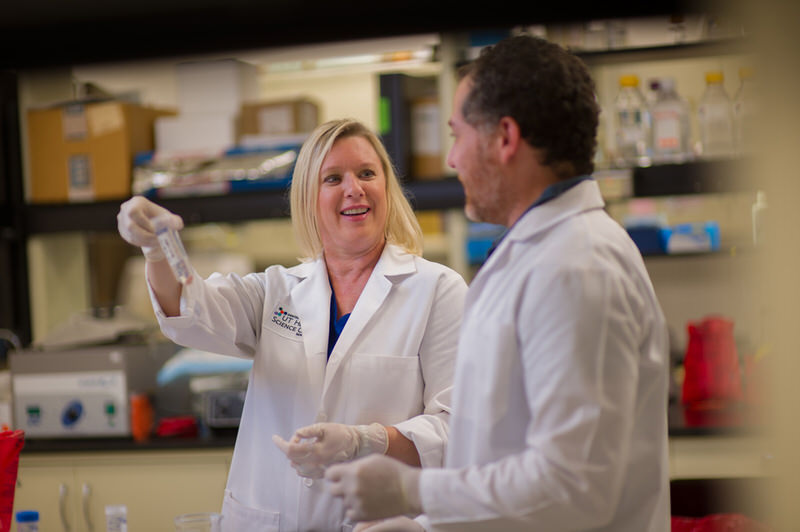 en you will; if you don’t then you won’t. Also, don’t take no for an answer. Nearly everything I’ve done in my career has taken more than one try. When people offer criticism it’s important to listen, address concerns, and then try again.
en you will; if you don’t then you won’t. Also, don’t take no for an answer. Nearly everything I’ve done in my career has taken more than one try. When people offer criticism it’s important to listen, address concerns, and then try again.
Your instructors want to see you succeed so when you’re told to repeat something, the faster you do it, the faster you will achieve your goal. As my dad always said “It’s all about perseverance.” Those are words he lived by and the main value he instilled in me that has enabled me to do anything I set my mind to.
10) When did you start becoming interested in science?
I fell in love with science in my freshman biology class in high school.
11) Growing up, what did you want to be?
I always wanted to be a scientist or some type of health care provider.
12) Who has influenced you the most in life?
My parents’ faith in me and my many mentors along the way who helped me believe I could achieve my goals.
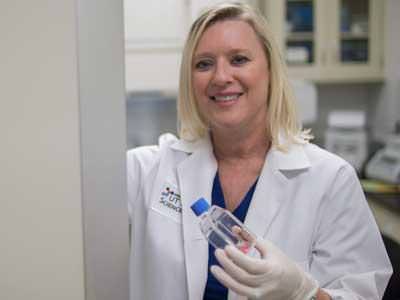 13) If you were stranded on a deserted island, what one band or musician would help keep your sanity?
13) If you were stranded on a deserted island, what one band or musician would help keep your sanity?
Only one??? Blink 182, 21 Pilots, Radiohead, Sublime…I can’t choose.
14) If you could have dinner with one person, living or dead, who would it be?
My dad.
15) If you won the lottery, what would you do?
Research, on my own dime.
16) If you could travel anywhere, where would you go?
Greece and Italy
17) If you could only eat one thing for the rest of your life, what would it be?
Mexican food
18) Which authors or book
s have influenced you the most?
Depends on my stage in life. When I was in college Dean Koontz and Steven King. Now…I’m not really sure, no time for leisure reading.
This article is part of the “Faculty Spotlight” series which showcases faculty at The University of Texas Health Science Center San Antonio.
